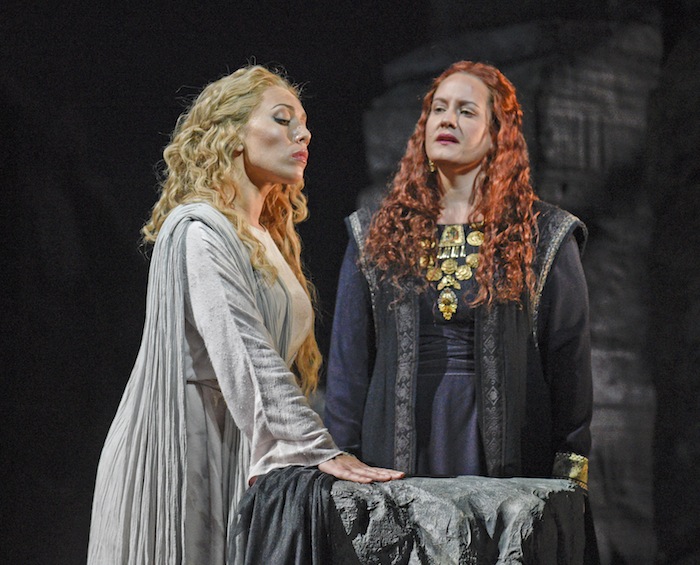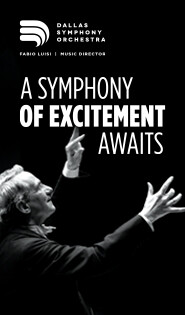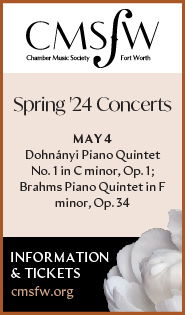A strong cast of singers lifts Dallas Opera’s “Norma”

Marina Costa-Jackson as Adalgisa and Elza van den Heever in the title role of Bellini’s “Norma” at Dallas Opera. Photo: Karen Almond
The title role in Bellini’s Norma may be one of the most challenging in all of opera. Norma, a Druid priestess in love with a Roman proconsul, is on stage and singing for most of the nearly three-hour work. In the Dallas Opera production which opened Friday evening, Elza van den Heever was triumphant as Norma, bringing admirable focus and strength to the performance.
Norma is set in the year 50 C.E., in Gaul. Druid priestess Norma has had two sons with Pollione, but he has transferred his affections to the younger priestess Adalgisa. In her despair, Norma contemplates killing her two sons to punish their father, in a clear echo of Euripides’ play Medea. The opera becomes, briefly, a sweet paean to female friendship, as Norma and Adelgisa bond over their mutual betrayal by Pollione, and Adelgisa renounces Pollione and declares her loyalty to Norma. Norma announces that it is she who will die, since she has broken her priestess’s vows. The perpetually fickle Pollione decides that he loves Norma after all and wishes to die with her, and, in the final scene, they approach the pyre, hand-in-hand.
Elza van den Heever’s biography includes roles ranging from Mozart to Britten to Wagner. Her voice is a wonder of complexity: bold in top coloratura with an almost dusky lower range. Her soprano projects well even in softer dynamics and in her chest register, and she uses a wide range of vocal colors to evoke Norma’s emotional state, from despair to resolve, in true bel canto style. Hers is a voice of masterful versatility.
As Norma’s unfaithful Roman lover Pollione, Yonghoon Lee showed a gorgeous, clear tenor in his upper range. In his darker lower register, he sometimes sounded forced on Friday. He is a fine actor, allowing his audience to believe in the proconsul’s far-fetched fickleness, and cuts a handsome figure in his Roman soldier’s garb.
Marina Costa-Jackson, as Adalgisa, is lovely both in her acting and her voice. As the novitiate priestess with whom Pollione has fallen in love, she evokes innocence and naiveté. In their duets, her soprano is a beautiful match for van den Heever’s: not as powerful, but more delicate, befitting their relationship as experienced priestess and youthful neophyte.
In supporting roles, tenor Charles Karanja excels as Pollione’s friend Flavio, bass Christian van Horn provides authority and gravitas as Norma’s father, Oroveso, while soprano Mithra Mastropierro as Norma’s friend Clothilde mostly requires her to gaze in distress at her hapless friend. On the rare occasions when we heard her sing, though, she provided valuable vocal support for van den Heever’s Norma.
The Dallas Opera chorus, prepared by Alexander Rom, exhibited finely honed ensemble and intonation, and effective acting. The Dallas Opera orchestra and conductor Emmanuel Villaume seem to have corrected balance issues of productions past. Although brass had a few ensemble and pitch issues, winds, percussion, and especially strings sounded polished and clean.
Sets and costumes were by John Conklin in a production originally designed for the Cincinnati Opera that kept the focus dominantly on the music. High stone walls flank the stage for both acts, with a changing, projected backdrop of first mountains, then gods, then mountains again. The sole dramatic visual occurs in the second act, when the climactic gong blasts elicit a giant disk from above. (We are told that this disk, with a human face projected on it, is the Shield of Irminsul, and presages war.) Lighting is mostly dim, sometimes enhanced by torches or braziers.
Costumes appear to be period-appropriate: Roman soldiers are in breastplates and capes, while the Druids are dressed simply, in robes. The women’s veils are used for effective staging by both van den Heever and Costa-Jackson as they dramatically cover and uncover their faces. The Druidic male chorus’s beards and shaved heads (or, more often, rather obvious bald caps) create a unified effect.
Norma runs through May 7. dallasopera.org


